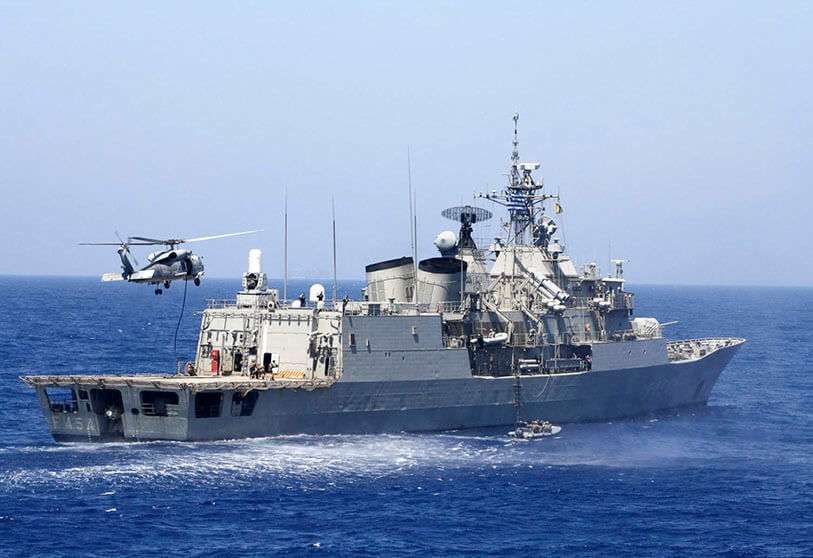Turkey extends its prospection in the Eastern Mediterranean and Greece warns that it will invalidate the Turkish announcement

Recep Tayyip Erdogan's idea of building the "Blue Fatherland" is maintained in the Turkish foreign policy. This expansionist strategy aims at the control and consolidation of Ankara in the three surrounding seas where waters and resources in the Eastern Mediterranean and Aegean controlled by Greece and other countries are found.
Furthermore, this plan foresees that several Greek islands will become Turkish property. The expansion activities are part of a complex plan that has the Mediterranean, the Aegean, Syria and the Red Sea as the main locations for establishing greater control in the seas surrounding Turkish territory.
In this context, Turkey will continue its exploration in disputed waters with Greece in the eastern Mediterranean until 12 September. Amidst escalating tensions with Athens over jurisdiction in the Mediterranean, Ankara will extend for ten more days the explorations with the seismic vessel Oruç Reis, which has been sailing in the maritime area between Crete and Cyprus for several weeks, according to the NAVTEX maritime warning service. The mission of the Oruç Reis was scheduled to end this September 1st.
The announcement has provoked an angry response from Greece. In response to this extension of the expedition, Greece has issued a warning to seafarers with the intention of invalidating the Turkish announcement. The Greek Ministry of Foreign Affairs described the warning as illegal and urged Turkey to ease tensions and work towards stability in the region.
"We call upon Turkey to distance itself from the daily deceptions in which it gets involved and to work for the security and stability of the region", the ministry stressed in its statement.

At the end of 2019, Turkey signed an agreement with Libya giving it control of Libya's maritime territory and establishing a kind of maritime "corridor" in the eastern Mediterranean. Control of the territory allowed Ankara to control the movement of vessels in natural gas tanks. Ten years ago this area was discovered to be rich in natural gas and several countries have asserted their rights over the area. The signing between Ankara and Tripoli provoked Greece's anger, and the United Nations did not approve this agreement either. In response to this agreement, Greece ratified a maritime border agreement with Egypt.
That is when Erdogan sent exploration and drilling ships and in response, Greece said it would defend its territory. The place of operations of the Turkish ship is in a maritime sector claimed as an exclusive economic zone (EEZ) by Athens. The Turkish response was to fly over the Greek islands with fighter planes and to put warships in the area. It should be remembered that Turkey is not a signatory of the UN Convention on the Law of the Sea, therefore it does not take into account the EEZ claimed by Greece and Cyprus.
The military escalation did not end there and a Greek frigate collided with a Turkish frigate accompanying the Oruç Reis, which caused France to take action. The French president, Emmanuel Macron, announced the temporary reinforcement of France's military presence in the Mediterranean with the dispatch of two Rafale fighter planes and the naval frigate Lafayette.
The militarisation of the area became visible on the Greek island of Kastelorizo. The Turkish government has accused the Greek of sending troops to the island and thus violating the 1947 Treaty of Paris that both countries signed to decide the terms of peace after the Second World War. The disarmament of this island was under the guarantees of the peace agreement, so Ankara has announced that it will not allow "these provocations off our coasts". For its part, Athens has assured that the military were already deployed on the small island and that the latest movements were only a routine troop rotation.

Tensions between the two members of the North Atlantic Alliance (NATO) have worried Brussels. The European Union has backed the Athens position and is considering sanctions against Turkey, but Brussels has made several calls for mutual understanding between the two sides of the conflict. There are two positions in this conflict: a harder one with Turkey, which includes France, Greece and Cyprus, and a more conciliatory line where Germany, Italy and Spain are involved. German Foreign Minister Heiko Maas visited Greece and Turkey last week to urge dialogue and warned both governments against further military escalation. Berlin, which holds the presidency of the European Union, is taking the lead in this crisis in the Mediterranean. The European Council is scheduled for the end of this month, where these sanctions can be taken.








